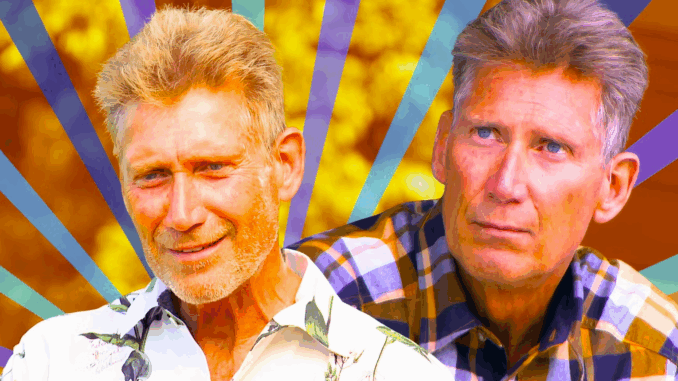
When The Golden Bachelor premiered on ABC, few expected it to become one of the most emotionally resonant and culturally significant reality shows in recent years. Centered around 72-year-old widower Gerry Turner, the show reimagined what love could look like later in life—and in doing so, it broke the mold of a genre long dominated by youthful drama and superficial connections.
This wasn’t just a dating show. It was a gentle, powerful reminder that love, grief, and growth don’t expire with age.
A Refreshing Departure from Tradition
For over two decades, The Bachelor franchise has offered viewers a front-row seat to whirlwind romances between mostly twenty- and thirty-somethings. While undeniably entertaining, the format has often been criticized for its lack of diversity—particularly in age and life experience.
The Golden Bachelor flipped that script.
From the very first episode, it was clear this series wasn’t interested in chasing ratings through spectacle. Instead, it embraced emotional honesty. Contestants shared stories of long marriages, the heartbreak of losing spouses, the complexities of adult children, and the hope that perhaps there was still time for a new beginning. These were not starry-eyed dreamers—they were survivors, healers, and realists, choosing hope over fear.
The difference was palpable. The tears felt real. The connections felt earned.
Gerry Turner: The Bachelor No One Expected
At the heart of the show was Gerry Turner, a retired restaurateur from Indiana who had lost his beloved wife, Toni, just six years before. His soft-spoken sincerity, Midwestern charm, and open vulnerability made him instantly relatable. He wasn’t a polished model. He was a grieving grandfather learning how to date again—awkwardly, kindly, and with his whole heart.
Audiences found themselves rooting for Gerry not because he was perfect, but because he was so human. His moments of indecision, his tears during eliminations, and his tenderness with the women revealed a man still figuring out who he was without the woman he’d loved for 43 years.
In Gerry, viewers saw themselves—or their parents, or grandparents. They saw that the capacity to love doesn’t vanish with age. If anything, it becomes more profound.
Women with Stories, Not Just Screen Time
The contestants of The Golden Bachelor were unlike any the franchise had featured before. Women in their 60s and 70s walked into the mansion with elegance, wisdom, and grace. More importantly, they arrived with life experience—and the willingness to share it.
Leslie Fhima, a 64-year-old fitness instructor, radiated strength and energy. Theresa Nist, the eventual winner, opened up about the loss of her husband and the difficulty of starting over. Faith Martin, with her guitar and big heart, charmed audiences with her openness and inner light.
These women weren’t competing for fame. They were searching for real connection in the second act of life. Their conversations didn’t revolve around drama—they revolved around legacy, loyalty, and love that lasts.
The audience responded with admiration, not mockery. Social media lit up not with memes but with gratitude. Many viewers said the show made them feel seen for the first time.
The Power of Vulnerability
What made The Golden Bachelor groundbreaking wasn’t just the age of its cast—it was its emotional tone. Where previous seasons of The Bachelor often relied on manufactured conflict, The Golden Bachelor leaned into the quiet courage of vulnerability.
Contestants cried. Gerry cried. Viewers cried.
There was something deeply healing about watching people who had experienced the full weight of life—joy, death, disappointment, survival—still daring to believe in the possibility of love. Their bravery lay not in grand gestures, but in the willingness to try again.
In a culture obsessed with youth, The Golden Bachelor became a radical act of emotional maturity.
A Cultural Shift in Real Time

As the show gained momentum, it became clear that ABC had tapped into a cultural undercurrent: the need to see older adults as full, vibrant people. Not side characters. Not comic relief. But protagonists of their own love stories.
Ratings soared. Social media buzzed. Memes were replaced by heartfelt letters. And suddenly, a long-ignored demographic had center stage—not as a novelty, but as the new normal.
The show’s success prompted ABC to fast-track The Golden Bachelorette, proving that this wasn’t a one-time experiment. It was the beginning of a movement.
More Than a Show—A Message
The Golden Bachelor offered more than entertainment. It offered hope. In a world fatigued by cynicism, the series delivered something rare: a genuine belief in the resilience of the human heart.
Viewers weren’t just watching people fall in love—they were watching people heal, reconnect, and reclaim their worth. They were watching themselves, their parents, or their future reflected on screen.
By showing that romance doesn’t end with retirement, the series reminded us that it’s never too late to hope for more.
